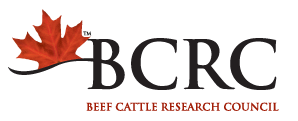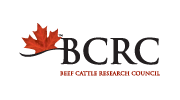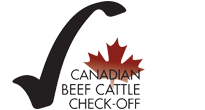2021 National Beef Quality Audit at Retail and Processing
| Project Code: | BQU.10.17 |
| Completed: | In Progress. Results expected in March 2023. |
Project Title:
2021 National Beef Quality Audit
Researchers:
Mark Klassen klassenm@cattle.ca
Mark Klassen (Canadian Cattlemen's Association), Jennifer Aalhus Ph.D., Mike Dugan Ph.D., Manuel Juarez Ph.D., Oscar Lopez -Campos Ph.D., Nuria Prieto Benavides Ph.D., and Xianqjn Yang Ph.D. (Agriculture Agri-Food Canada Lacombe)
Background:
Canada has conducted National Beef Quality Audits in 1995, 1999, 2010, and 2015. The Audit measures defects and quality in Canadian beef at the packer, further processor, retail and consumer levels to measure progress towards correcting defects identified in previous audits and identifies opportunities for further improvement.
Objectives:
To benchmark measurable carcass and offal quality attributes during harvest as well as to survey value chain priorities from feedlots, packers, retailers, and food service. Researchers will also survey meat at national retail banners and foodservice to benchmark merchandising trends for Canadian beef.
What They Will Do:
Auditors will visit large packing plants that together process 75% or more of Canadian cattle on three consecutive days in fall, winter and spring. A total of 15,000 grading records will be collected from the days of those visits (yield, marbling, REA, grade fat, quality grade) and defect data (hide color, brands, horns, tag, bruises, grubs, surface injection site lesions, BCS, liver abscesses, condemnations) will be collected from 33,000 head. Computer programs allowing the e+v carcass grading camera to detect bruises will be tested. Feedlots, packers, retailers, and foodservice sectors will be surveyed regarding their priorities for enhancing beef carcasses and beef quality.
Retail beef (300 each of striploin, top sirloin, crossrib and inside round steaks) as well as lean and extra lean ground beef (75 packages each) will be purchased in Calgary, Toronto and Montreal. Fat depth, color, width, length, and thickness will be measured on the steaks. Half of each type of steak will be used for quality analyses. Numbers and types of E. coli will be determined. DNA will be extracted for genomic tenderness tests, then cooked and used for mechanical tenderness measurements. The other 150 steaks will be used to assess flavor profiles, tenderness, flavor, and juiciness. Burger samples will be used for proximate analysis (moisture, fat, protein, iron, vitamins, oxidative stability).
Implications:
Canada’s National Beef Quality Audit Beef is the industry’s report card that documents improvements in carcass and beef quality, identifies opportunities for further improvement along the value chain, and informs industry efforts to satisfy customers with the juiciness, tenderness, flavor and overall quality of Canadian beef.








